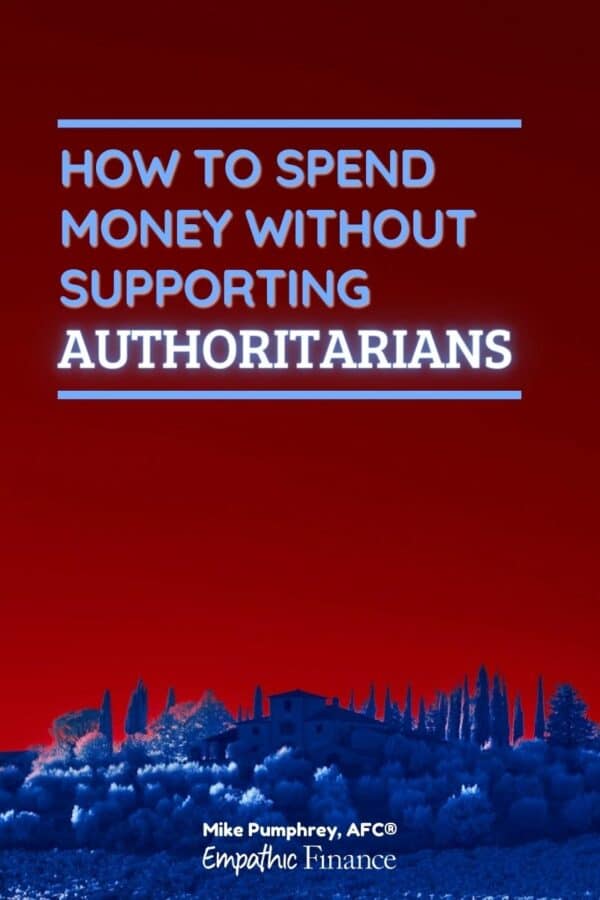Some resources on how to spend money in ways that don’t support authoritarians, or those who do support them.
About 15 years ago, I decided to look at every product I was purchasing, and see whether I could switch to something that was better for me and for the planet.
Degree antiperspirant? No thanks, it has aluminum in it, which some said could cause cancer. Instead, I chose Liken Plant, which is aluminum free and many other chemicals-free.
Pantene shampoo? No thanks. I switched to Andalou Naturals. Much less garbage in those.
This was also the time I became vegetarian. It just seemed so boring and basic to kill animals (and support animal killing operations) just because they might taste good.
I wasn’t able to purge every product that didn’t align with my values (ahh Dove soap, why do you need to contain beef tallow?) but I did a good job, and that research has served me to this day.
And I think it’s time that we seriously consider looking closer into all of our spending, not just for the planet, but for our own safety as well.
As the U.S. tips closer to authoritarianism and disregards the Constitution, it seems obvious that we should not support this. But, sadly, much of the country, including many of its businesses, do support this, or at least are claiming to, either through fear or as a way to profit from our country’s decline.
So how do we push back? One way is to look at our companies to see what they support, and make our decisions from there.
Table of Contents
Goods Unite Us
I’ve recently come upon a very fascinating site called Goods Unite Us. While the organization behind the site talks about wanting to put an end to corporate political donations, in practice, what this site offers is a very easy search engine where you can see where companies have been donating money.
It’s very easy to use. Just go to Goods Unite Us and enter a company name in the search box at the top.
I’ll start with Costco.
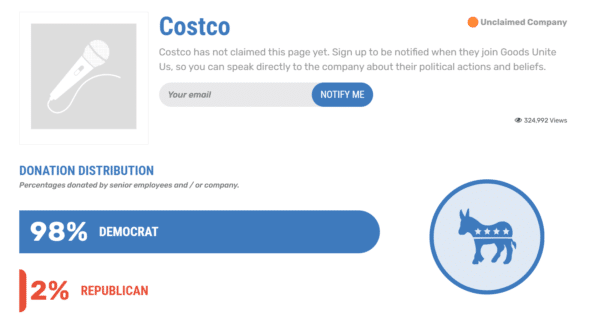
Looks like they (or their senior employees) have contributed 98% to Democrats and 2% to Republicans.
How about Target?
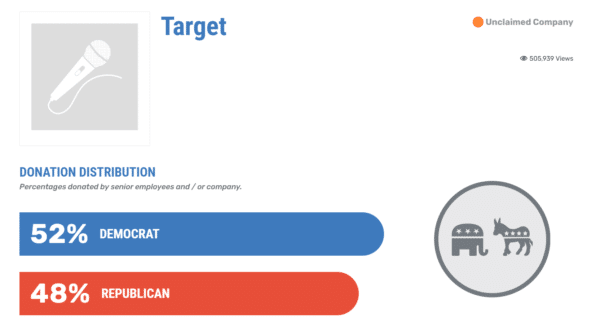
Target is much more equivocal, with 52% going to Democrats and 48% going to Republicans
And then, for contrast, here’s Hobby Lobby. You can probably guess where its contributions go.
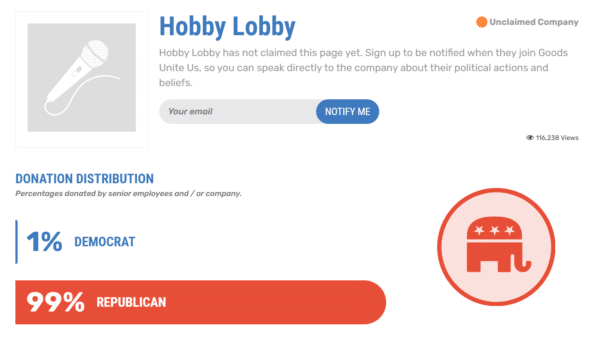
Yes, 99% going to Republicans with 1% going to Democrats.
It’s a fascinating site, with more information on each company than just who they support. I encourage you all to go check it out.
You need a list
The problem with voting with your wallet is that it can be insanely complicated and require near constant vigilance. It’s not just about stopping spending at Amazon. I know I could use a cheat sheet. Thankfully, people have used the data from the above site and created just such a cheat sheet.
The cheat sheet is called the Blue Shopping List, and it’s a Google Doc showing all the companies that don’t align with authoritarianism.

I encourage you to check this out too. The only issue as I see about it, is that it doesn’t show you which companies aren’t on the list, and it’s the omissions that are as notable as the inclusions.
A Democratic mutual fund?
Finally, there is the question about where to put your investment money. If you just invest in the S&P 500, you’re buying fossil fuel companies and firms that definitely support causes you don’t believe in.
So an investment company has created a specific mutual fund that aims to only support Democratic values.
It’s called the Democratic Large-Cap Core Fund, and has the amusingly-named ticker of “DEMZ“. It claims to be the first investment product that strives to replicate the S&P 500 but without the GOP (or fossil fuel companies).
What price to not support authoritarians?
This DEMZ fund idea is very interesting, but it raises thorny questions about financial stewardship.
Because let’s be honest: right-leaning, fossil-fuel-loving, regulation-spurning companies do very well in the stock market over a long period of time. To take those out of your basket of mutual funds is to all but guarantee lower returns.
As this chart makes clear, the DEMZ fund consistently underperforms the (Vanguard) S&P 500 that it was designed to mimic.
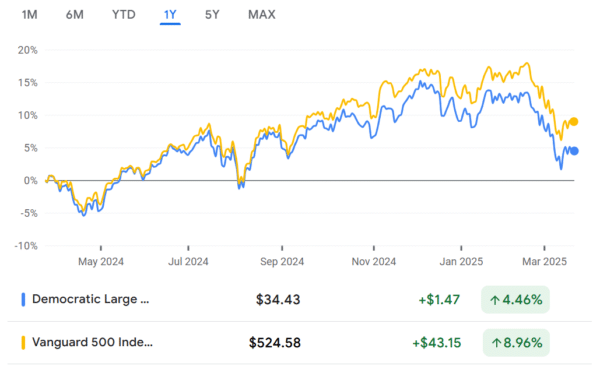
So that begs the question: Is it worth it to make lower returns in your investments in order to not support certain companies whose values you don’t support, or is it better to invest that money in those companies, make a higher return, and then use that money toward causes you do support?
That’s a hard one to answer.
Think (and spend) critically
I think I’m going to pass on the DEMZ fund, but I wouldn’t fault you for going in on it. If nothing else, I appreciate that people are thinking critically about how to use their money to support democracy and democratic norms, and to not support companies that support the current administration’s attempts at autocracy.
What else can we do?
Note: This is not an endorsement of any of the products listed here. I have no financial relationship with any of them. I just thought they were interesting and worth sharing. Please see my Disclosure Policy.
